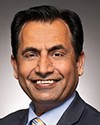Mr. Speaker, today we are debating Bill C-3, an act to amend the Citizenship Act. This bill responds to a court ruling.
Let us take a look at the historical background. In 2009, the Harper government amended the Citizenship Act to prohibit the transmission of citizenship beyond the second generation for children born outside Canada, even if their parents are Canadian. In December 2023, the Ontario Superior Court of Justice struck down provisions of this law on the grounds that they violated section 6 of the Canadian Charter of Rights and Freedoms, which deals with mobility rights and states that every citizen has the right to enter, remain in and leave Canada, as well as section 15 of the charter, which deals with equality rights. The parties challenging the law represented seven families that were discriminated against by this law, and the court recognized that the ban introduced in this law was unfair, especially for those who were forced to choose between the birthplace of their child and the transmission of citizenship.
The case of the Brooke-Bjorkquist family illustrates the problem perfectly. A child was born in Geneva in 2010 to Canadian parents who were working for the government abroad. Despite the fact that this child was born to two Canadian parents and she returned to Canada at the age of one, she would not be able to follow in her parents' footsteps under the provisions of the act. She would not be able to choose to work abroad at some point in her career and give birth to a child abroad, because her child would not be able to obtain Canadian citizenship. That is ridiculous because the child was only born in Switzerland because of circumstances related to her parents' work and she spent most of her life in Canada.
The bill seeks to correct this type of injustice, which is why the Bloc Québécois supported it at second reading. Today, this bill has been sent back to the House from the Standing Committee on Citizenship and Immigration for report stage consideration. At this point, we must ask ourselves a very simple question: What is the purpose of parliamentary committees?
After reviewing 26 briefs, hearing from 14 witnesses, holding two meetings and conducting four hours of work, the Standing Committee on Citizenship and Immigration is sending the bill back to us with nine amendments. These nine amendments were adopted by a majority of committee members. What is the purpose of parliamentary committees in the context of a minority government like the one we have now? Are they a necessary but futile step, at the end of which the House overturns all the amendments that the parliamentary committee adopted by a majority vote? Alternatively, are committees a place where the will of the people can be expressed by representatives of recognized opposition parties?
I would remind members that, in April, the people elected more opposition members than government members. Were they sending a message? Did the people not give power to one party while asking that the other parties be more involved in law-making? I think so.
Yvon Pinard, the then president of the Privy Council, said the following about committees on November 29, 1982, and I quote: “Experience has shown that smaller and more flexible committees, when entrusted with interesting matters, can have a very positive impact on the development of our parliamentary system, upgrade the role of Members of Parliament, sharpen their interest and ultimately enable this institution [or committees] to produce much more enlightened measures that better meet the wishes of the Canadian people.” I think the last part of that statement is the most relevant part.
The bill as improved by the Standing Committee on Citizenship and Immigration is a bill that contains more informed measures and, in our opinion, better reflects the wishes of the public. However, the government now wants to revisit the work that has been done and undo the improvements made in committee. It should be noted that the amendments now being proposed in the House come from the government, but also from a member of a non-recognized party.
It could be argued that, although that party is not recognized, its members should still be involved in the law-making process. That is difficult to dispute. The real question is, how involved can they be? Can they go so far as to erase almost all the work done in committee, to the point of setting aside the votes cast in committee by representatives of recognized parties? This seems to be at odds with the message sent by voters, who wanted to give more power to opposition parties.
There seems to be a risk that, at the end of the process, we will ask ourselves the same question: What is the purpose of parliamentary committees in the current Parliament?
The Bloc Québécois asks that the work done by the members of the Standing Committee on Citizenship and Immigration be respected. We ask this because we believe it is a matter of parliamentary democracy and respect for the will of the voters, but also, in our opinion, because the amendments adopted in committee improve the bill amending citizenship.
The Bloc Québécois supports Bill C-3 as amended by the committee. The bill was amended so that the requirements for passing on citizenship by descent to second-generation Canadians born abroad would align in every way with the requirements applied to naturalized citizens going through the immigration process. Bill C-3 proposed that citizenship be granted to children if one parent had spent at least 1,095 days in the country, the equivalent of about three years, over an indeterminate period prior to the child's birth. The Bloc Québécois supported an amendment to include this 1,095-day requirement, but over a five-year period instead, to match the requirement for people seeking citizenship through the immigration process. This amendment corrects injustices and ensures that new Canadians have a real and substantial connection to their new country, not a tenuous one.
Furthermore, we also supported an amendment to require citizenship applicants over the age of 18 to meet additional requirements. Like naturalized citizens, they would have to pass a language test, pass a knowledge and citizenship test and undergo a security assessment.
Another amendment adopted in committee establishes some degree of accountability by requiring that a report be tabled in Parliament containing the annual statistics on the number of citizenships granted under the new law. It is important to know what kind of impact this new legislation is having. The Parliamentary Budget Officer estimates that the new rules could result in 150,000 new Canadian citizens over the next five years. That is more than the entire population of the Gaspé and the Magdalen Islands, and more than the vast majority of ridings in the House. That is a significant number of people. I think it is important to understand what effect this new legislation will have.
We believe that these amendments respond to the court's ruling calling on us to determine what constitutes a real connection to Canada. By aligning the naturalization requirements for second-generation children born abroad with those for individuals seeking citizenship through immigration, we are ensuring a level playing field for everyone.
However, the amendments that the government and the member from an unrecognized party are now proposing to the House seek to restore the amended clauses to their original form, except for the three requirements regarding security assessments, the French language and citizenship tests for people aged 18 to 55. At least that is something.
Apart from those three things, the amendments introduced by the government seek to overturn the work of the majority of the members of the Standing Committee on Citizenship and Immigration. The government's intent is to restore the bill to the way it was before it was studied in committee, reinstating the requirement that one of the parents must have been present for 1,095 days over an indefinite period, rather than within the five years preceding the birth of the child, in order for the child to obtain Canadian citizenship by birth. In our opinion, it is reasonable to require the parent to have been present in Canada for about three of the five years before the birth.
The amendment also removes the requirement to table an annual report in Parliament on the number of citizens who have benefited from the law in order to obtain citizenship. Why oppose a transparency measure? Why refuse to learn what effect this new law will have on the number of Canadian citizens? I do not understand this.
That is why we will vote against the amendments proposed by the government and the member at report stage and support the version of the bill as amended by the Standing Committee on Citizenship and Immigration. These amendments remove important safeguards that were added in committee by a majority vote in order to avoid a situation where, in righting wrongs, we leave the door too wide open, causing citizenship to lose its value.




















